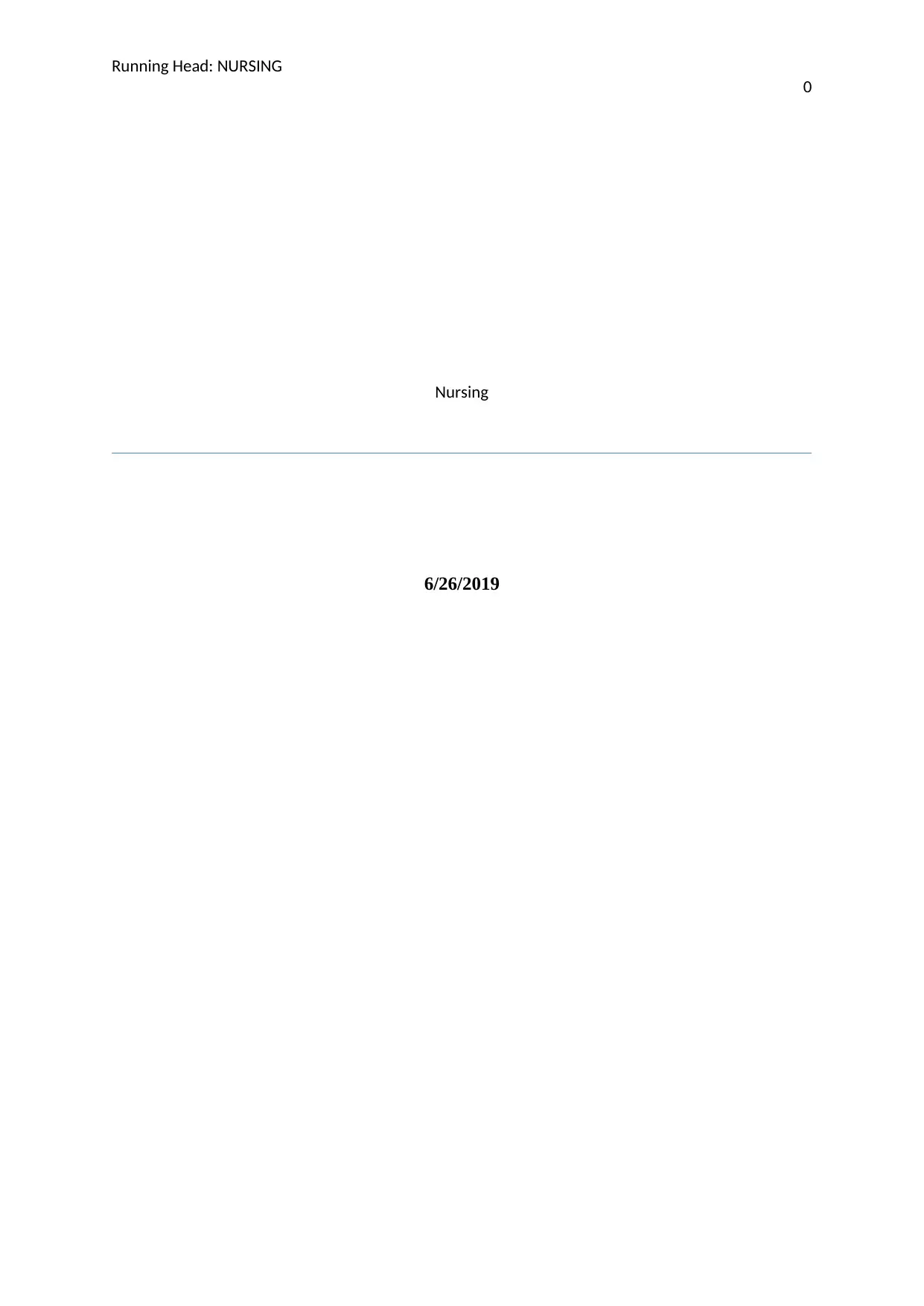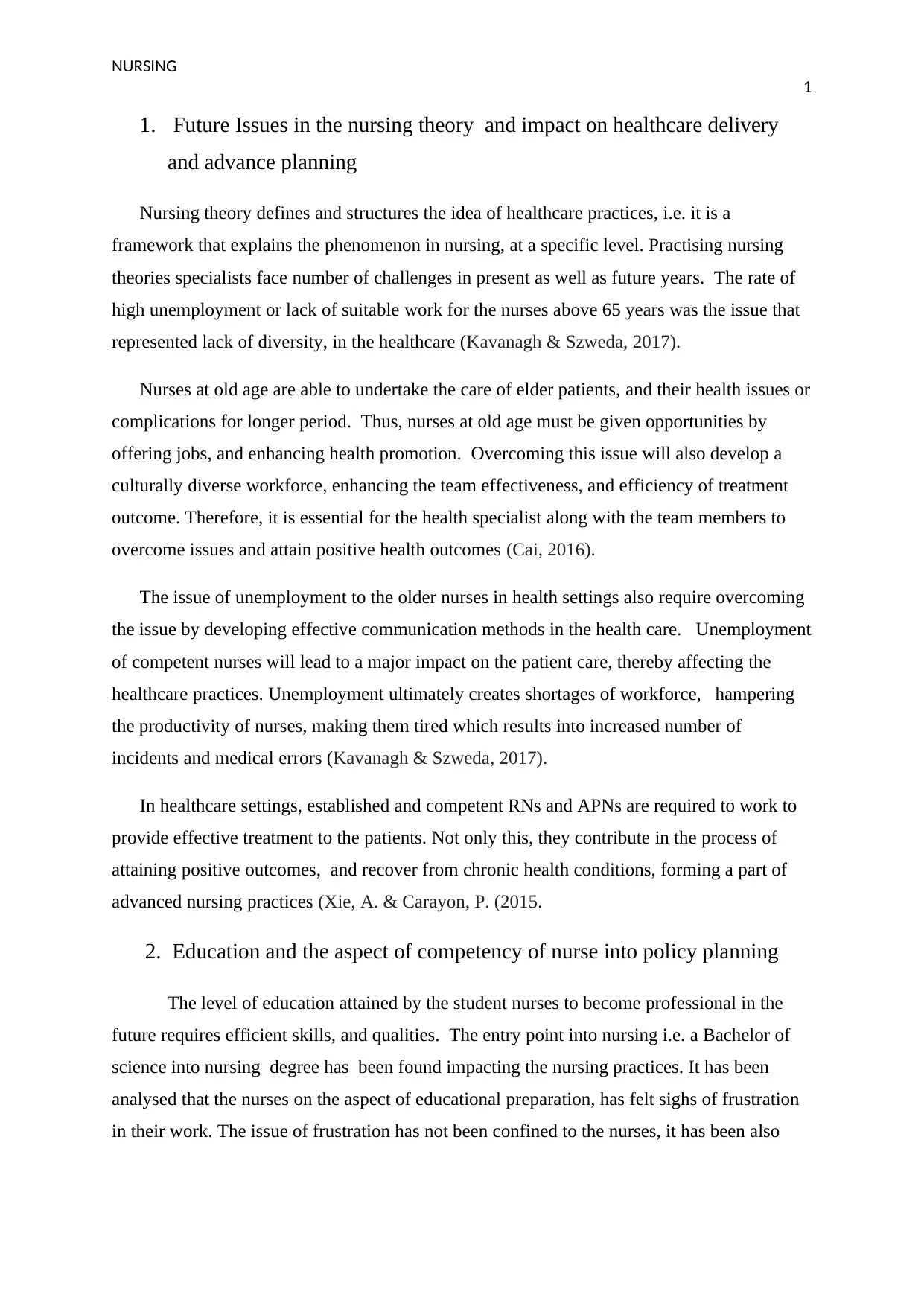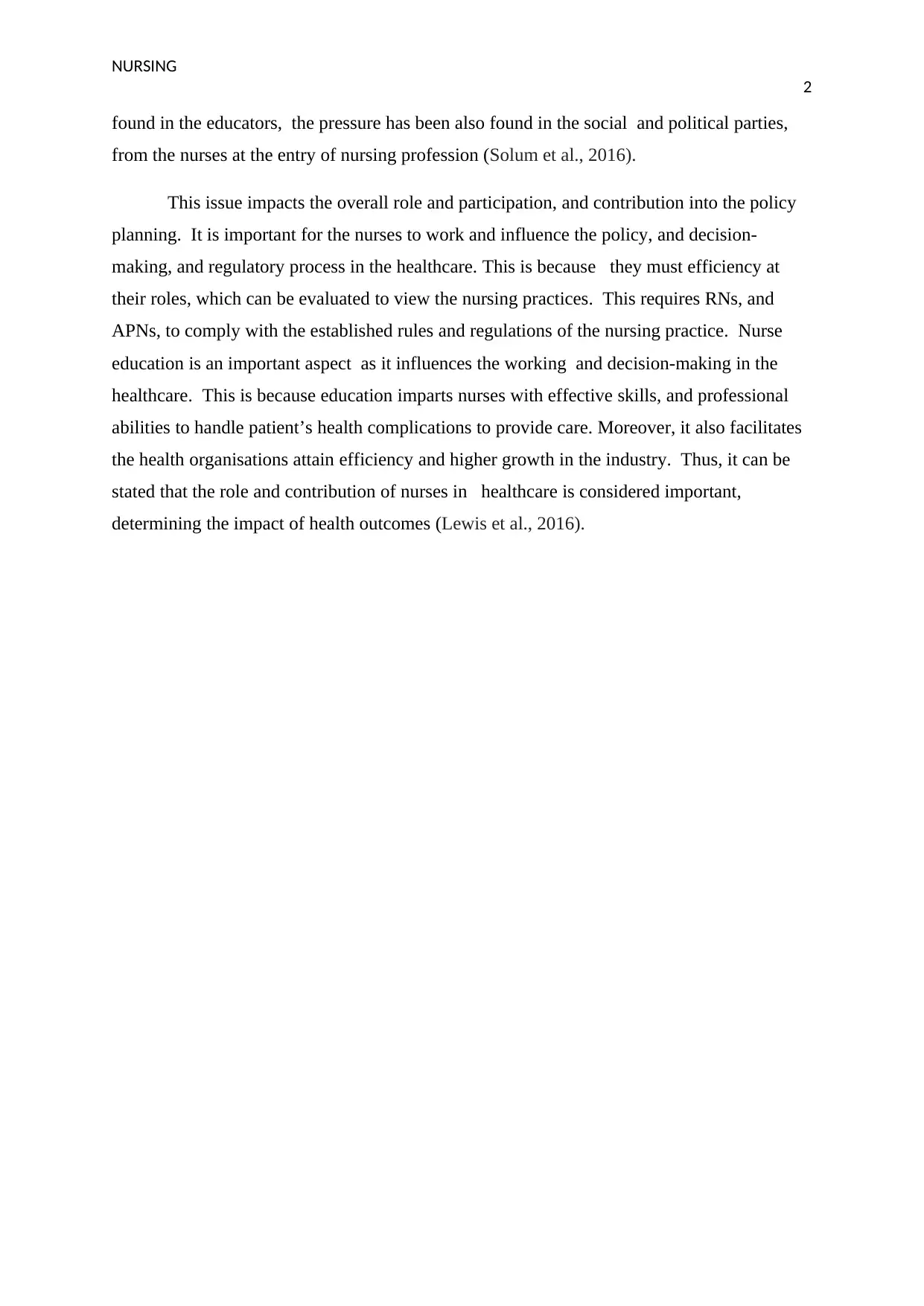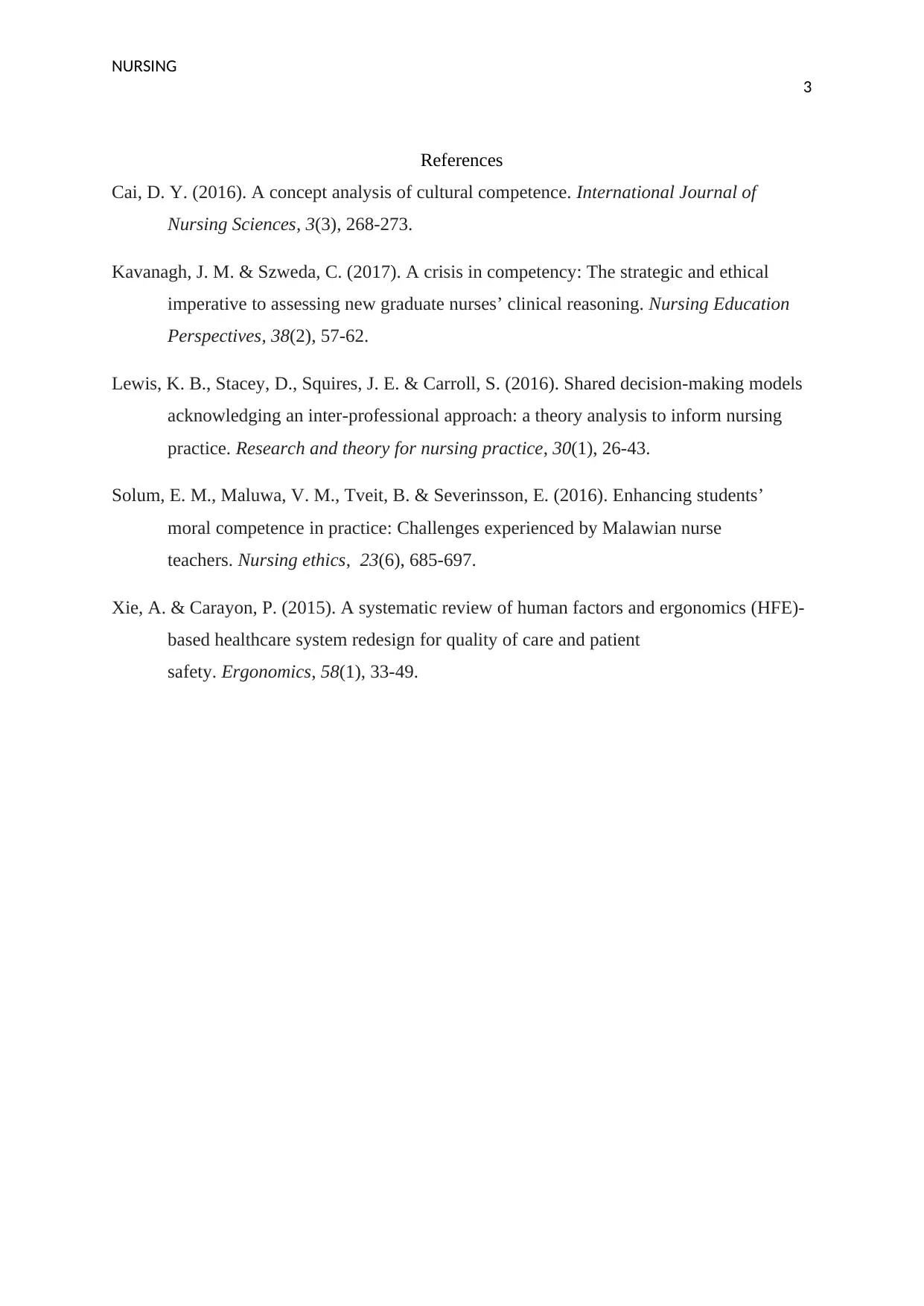Analysis of Future Nursing Theory Issues on Healthcare Delivery
VerifiedAdded on 2022/11/29
|4
|855
|412
Report
AI Summary
This report examines two key aspects of nursing theory and its impact on healthcare. The first part focuses on future issues, particularly the challenges of an aging nursing workforce, lack of diversity, and the need for effective communication. It emphasizes the importance of addressing unemployment among older nurses to leverage their experience and promote a culturally diverse workforce, which enhances team effectiveness and patient outcomes. The second part of the report discusses how nurses' educational levels and entry points into the profession influence their competence and participation in policy-making. It highlights the importance of nurses influencing regulatory processes and the impact of education on their ability to provide effective care and contribute to healthcare advancements. The report underscores the critical role of nurses in shaping healthcare practices and achieving positive patient outcomes.
1 out of 4











![[object Object]](/_next/static/media/star-bottom.7253800d.svg)